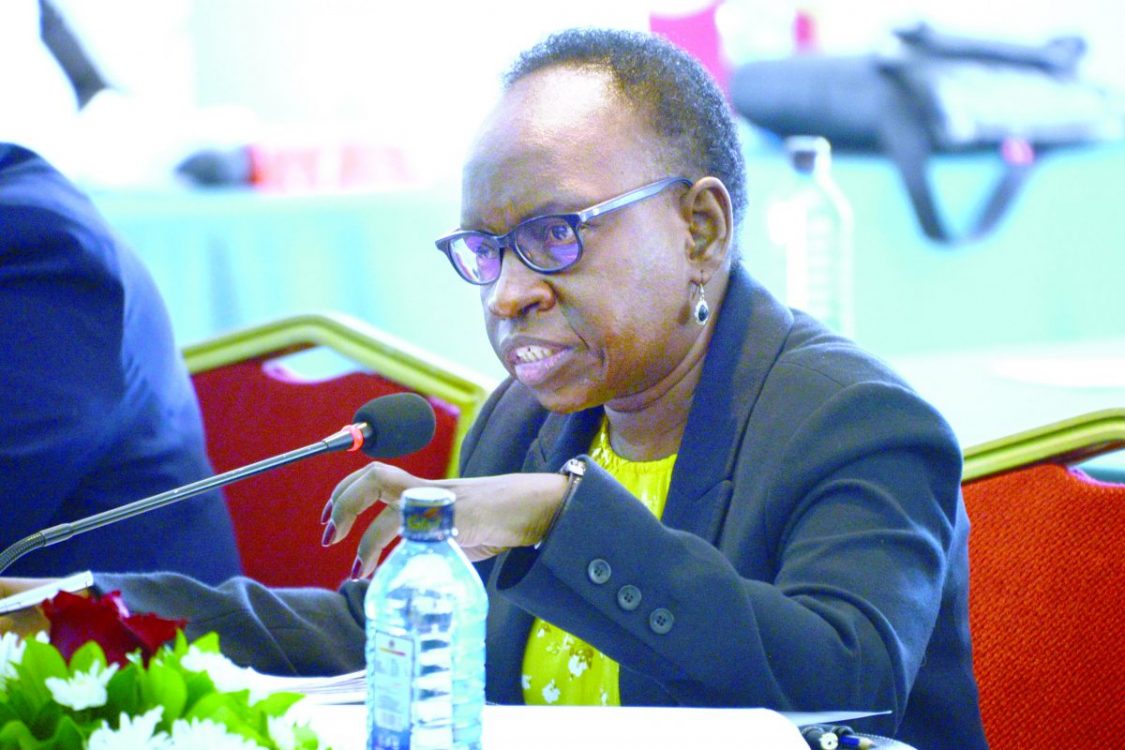Report raises concern over KUTRRH land ownership

Kenyatta University Teaching, Referral and Research hospital (KUTRRH) does not have ownership documents for the land where the hospital sits, a new report shows.
The report by Auditor General Nancy Gathungu for the year ending June 30 2021, raises concerns that the land is owned by Kenyatta University, a semi-autonomous Government Agency in the ministry of Education which was assigned a nominal value of Sh 1 as of June 30, 2021, a move that is unrealistic. Gathungu noted that although land and buildings have a net value of Sh 5.3 billion, the said balance does not include the value of the land on which the hospital has been built.
According to her, apart from the management admitting that the hospital has no documents on ownership and valuation of the land, other records indicated that the ownership of the land was one of the items that were in transition discussions between the Hospitals Board and the Management of the Kenyatta University under the guidance of the parent ministry.
“The hospital had therefore not acquired the title deed to the land or carried out any valuation thereof as at 30 June 2021. In the circumstances, the accuracy, completeness, valuation and ownership of the land and buildings of Sh 5, 323,114, 303 as at 30 June 2021 could not be confirmed,” reads the report.
And apart from the land issues, the hospital is also on the spot over inadequate verification and tagging of fixed assets, non-adherence to staff ethnic balance requirements, employing staff beyond monthly retirement age, officers in an acting capacity beyond stipulated age, irregular imprests, lack of an update register as well as irregularities on human resources management.
On imprests, Gathungu says that records show that the hospital incurred expenditures of Sh 3.6 million and Sh 4.4 million on local travel and accommodation and seminars and conferences respectively which were paid directly to individuals, through per diems, without the issuance of imprests warrants. “This was paid contrary to Regulation 93(2) of the Public Finance Management (National Government) regulations, 2015 which states that imprests shall be issued for a specific purpose and any payments made from it shall be only for the purposes specified in the imprests warrants.
With regards to the irregularities in human Resources Management, Gathungu regretted that a review of personal files revealed a lack of clear recruitment specifications and uncompetitive filing of the sane position.
Increment amount
Further, she regretted some positions filled were not in the staff establishment and the incremental amount of some employees’ basic salaries were not supported by any criteria. “ In the circumstances, the hospital human resources instruments and practices are not aligned to the Public Service Commission Human Resources policy and procedures manual for the public service of May 2016 thus posing a risk to the operations of the hospital,” adds the report.
On ethnic balance, she noted that a review of the human resources records revealed that out of the 999 staff in service as at June 30, 2021, 445 or 44 per cent of the total number of staff were from the same ethnic or dominant community.
With regards to officers in acting capacity beyond stipulated period, she noted that a review of human resources records of the hospital revealed that three officers were appointed in acting capacity for more than six months.
According to her a review of personnel records revealed that the officers earned acting allowances amounting to Sh 456,790 for the period beyond the stipulated time of acting appointment, which was contrary to section C 14 of the Public Service Commission Human Resource Policy and Procedures Manual for the public Service of May 2016.
On staff employment beyond the mandatory retirement age, she noted that examination of records on personnel emoluments indicated that Sh 20.8million related to payments to officers employed after attainment of the mandatory retirement age of 60 years and others who had already attained the mandatory retirement but were still in service. ‘This was contrary to section 7(1) and (2) of the national Cohesion and integration act 2008 which requires “all public offices to seek to represent the diversity of people of Kenya in employment of staff and that no public institution should have more than one third of its staff establishment from the same ethnic community,” reads the number.












